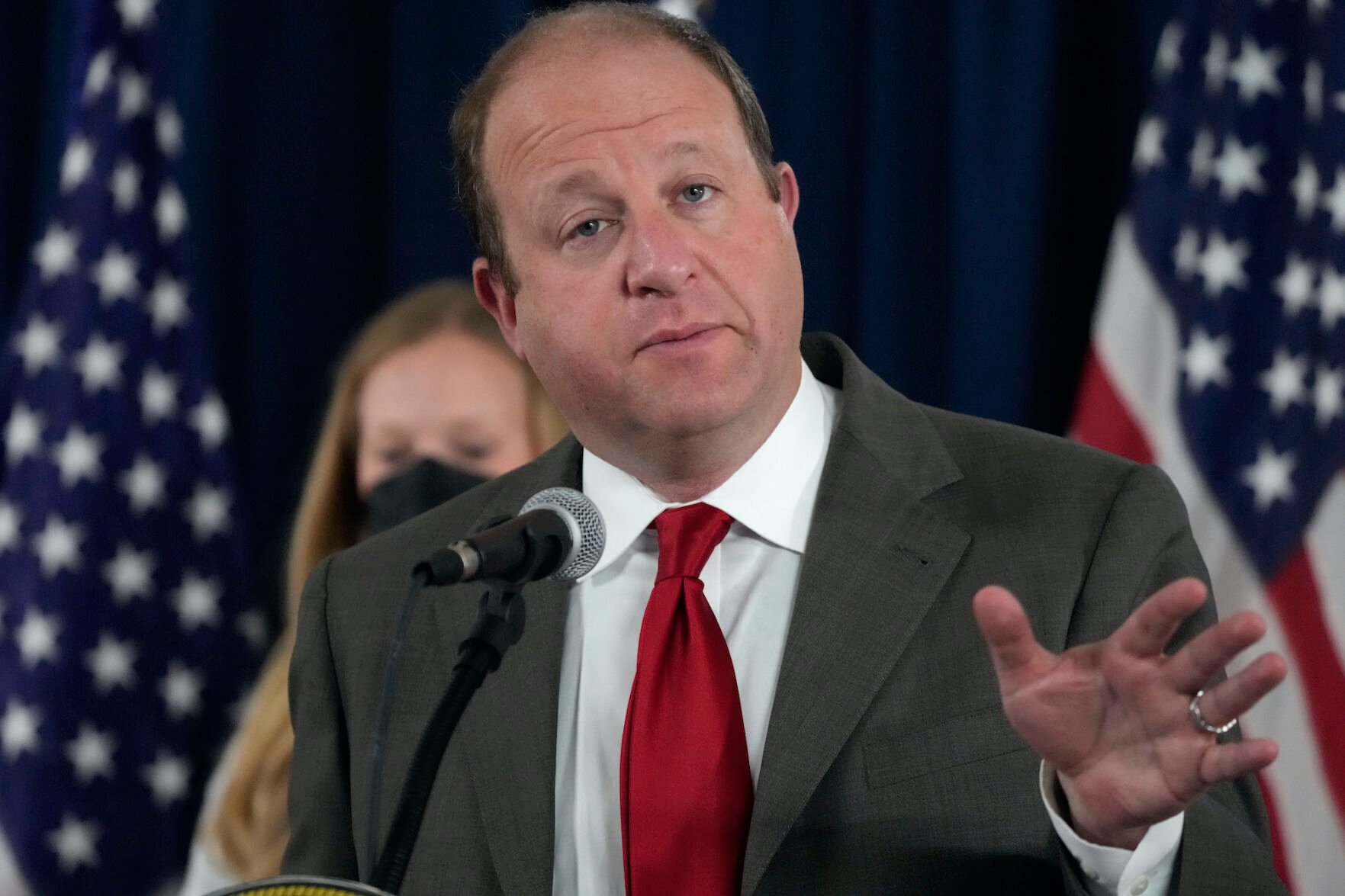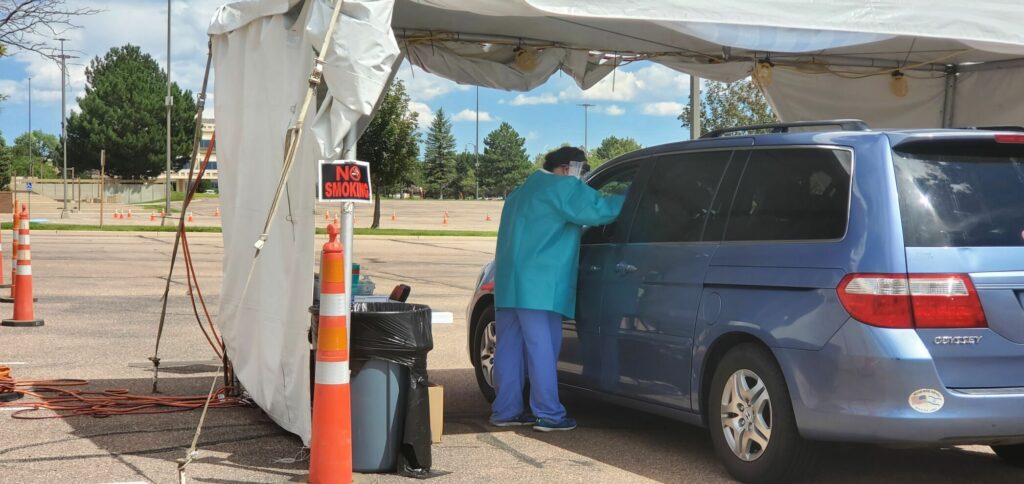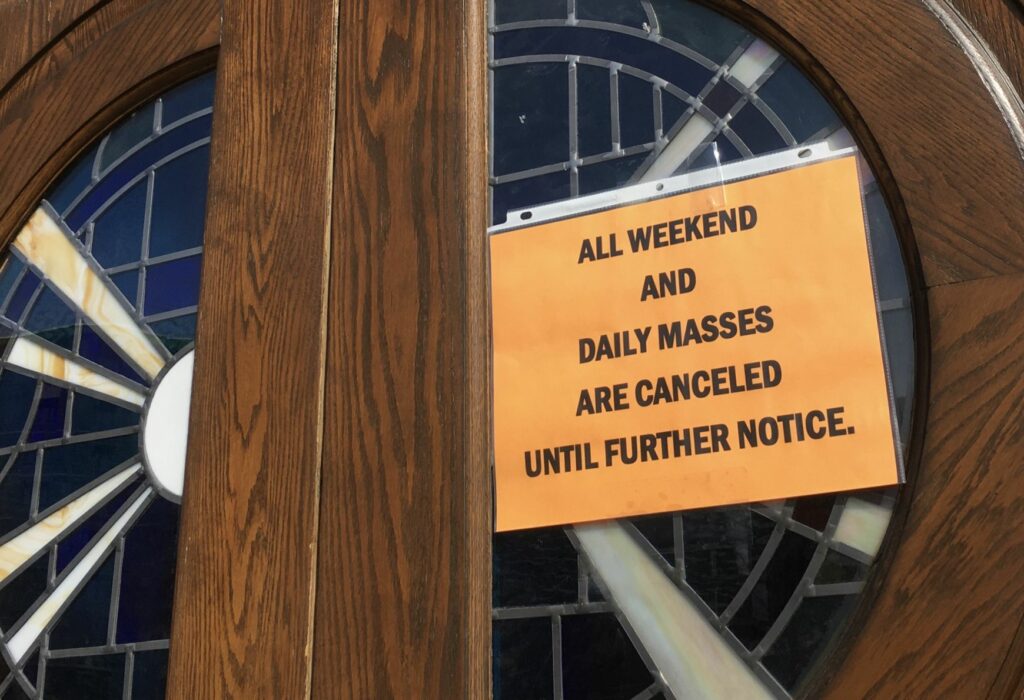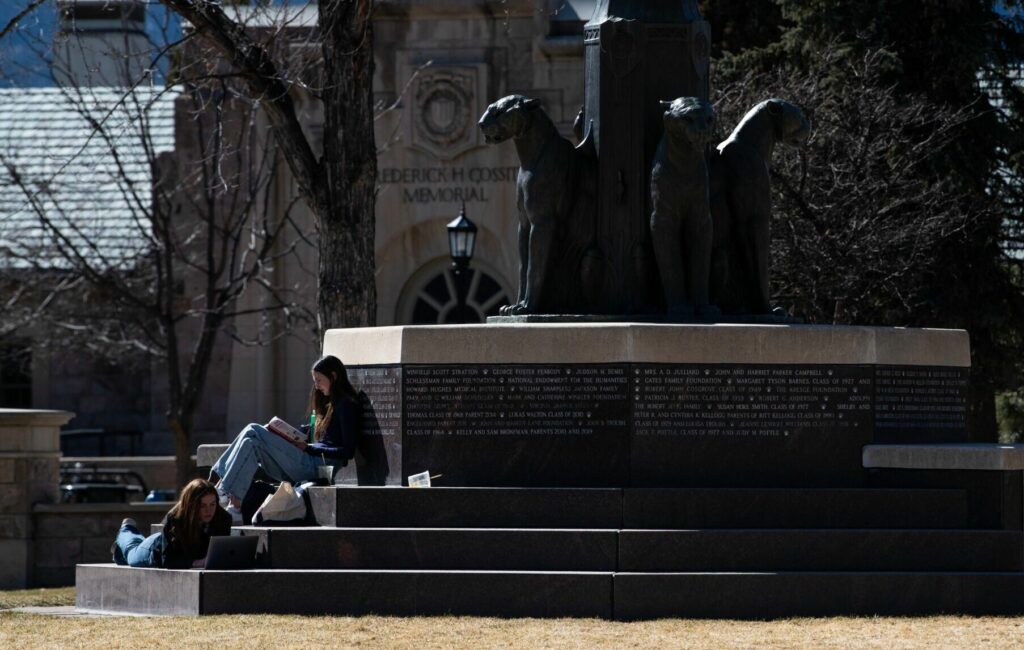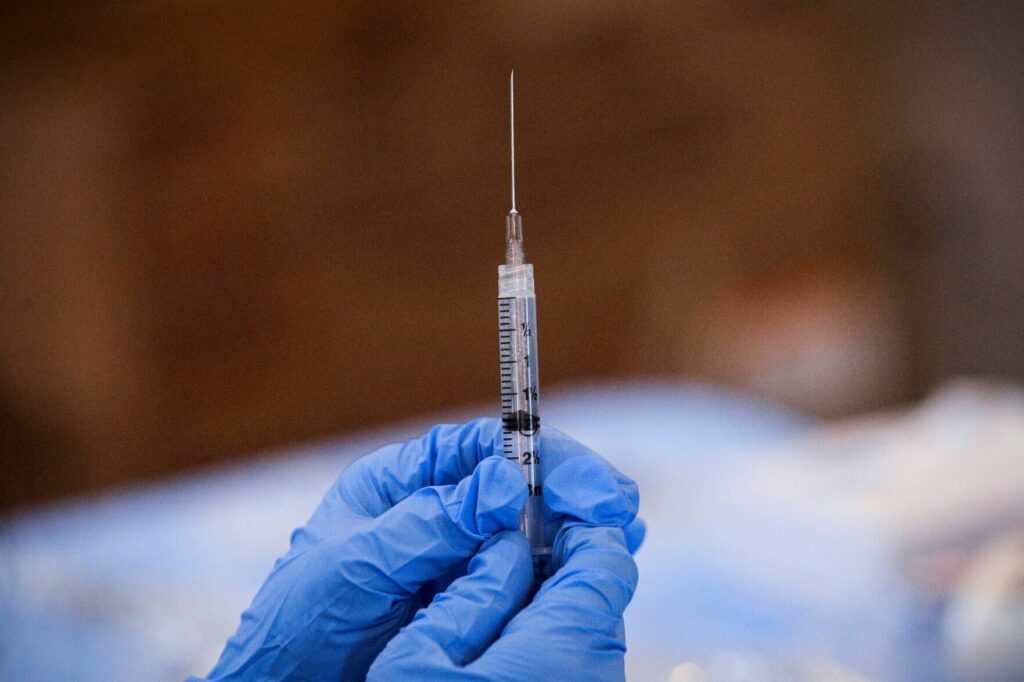‘The situation is only going to worsen’: Colorado doctors call on Polis to enact crisis standards of care
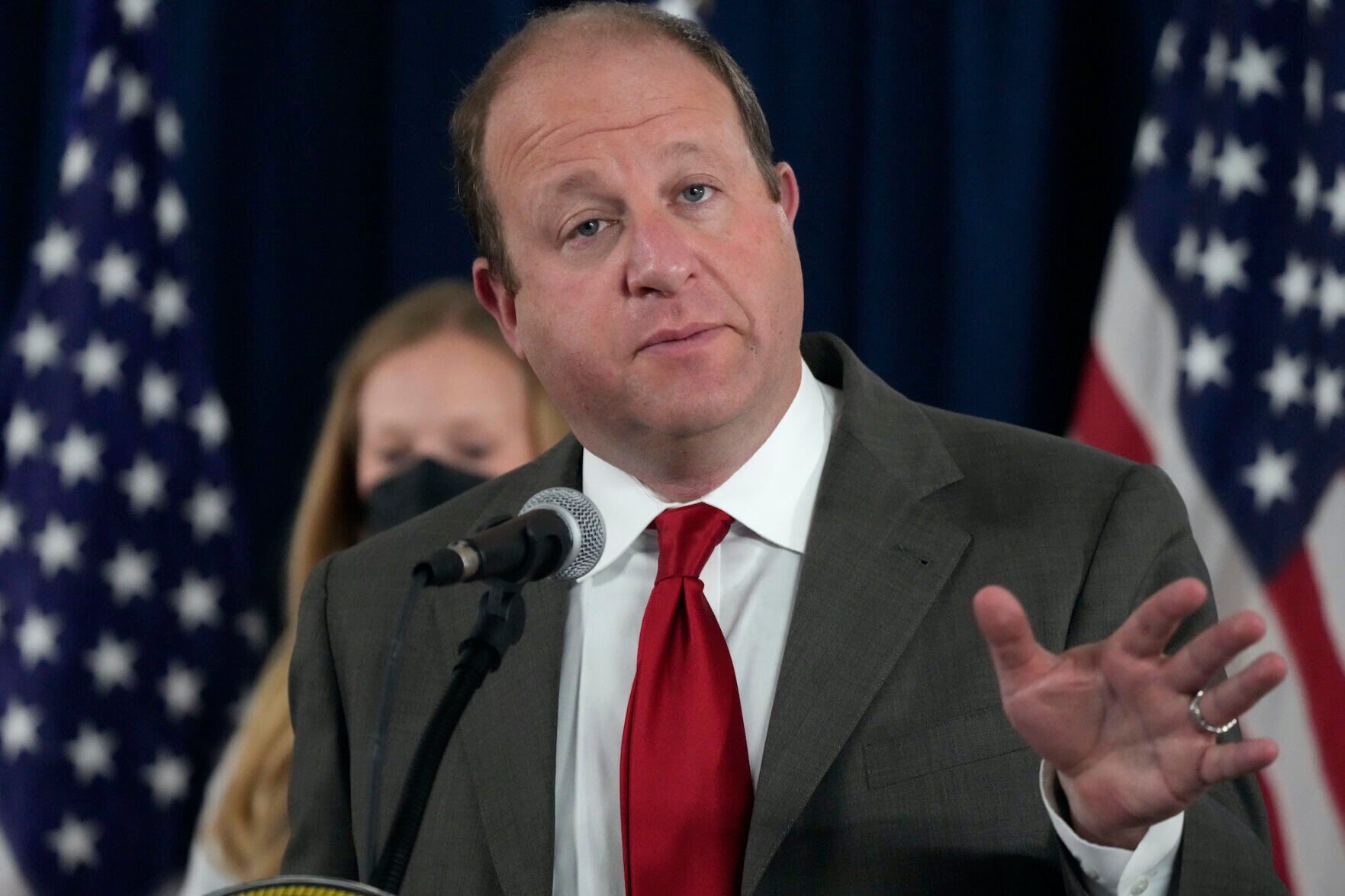
Some Colorado hospitals are already enacting tenets of the state’s crisis standards of care amid a crush of patients and a shortage of providers, and emergency physicians have now called on Gov. Jared Polis to officially enact the plan for the first time.
Emergency departments “are currently dealing with conditions that have never been seen before in our state,” the Colorado chapter of the American College of Emergency Physicians wrote in a letter to Polis last week. They warned that the “situation is only going to worsen over the next few weeks and many of these problems will persist even after we see the COVID wave crest.”
The enactment of the hospital crisis standards would allow facilities to determine which emergency room patients need to be admitted and which can be referred to treatment elsewhere.
While many hospitals are reportedly already doing this, they are doing it without liability protections and without formal recognition by the state, which opens the door to equity and uniformity issues, experts said.
Polis has the power to enact the standards; he has already done so to allow looser staffing guidelines and to give ambulance crews the authority to choose who needs a ride to the hospital. But he has never taken the step to give hospitals the ability to triage patients, and a top state health official told reporters last week that the state was not contemplating doing so. Polis’s office did not return a request for comment Tuesday.
But in a call Tuesday afternoon, representatives from his office and from the state Department of Public Health and Environment spoke with emergency providers. There were signs that the state may carve out a new form of the crisis standards applicable only to ERs, said Allison Trop, the incoming head of the Colorado chapter of the emergency physician college. She said the group would meet again next week to discuss the concept further.
Anuj Mehta, a Denver Health intensive care physician and researcher who led the effort to rewrite the overall standards in November, said emergency rooms needed support more than other areas of the hospital. He told the Denver Gazette earlier this month that hospitals were already enacting the standards and that the state would benefit from Polis stepping in.
“The part of Crisis Standards of Care we need is the framework to decompress hospitals in the emergency department and non-ICU settings in the hospital and diverting some of those patients to outpatient care,” he said in an email Tuesday.
“Statewide activation would create a level playing ground and ensure greater equity, fairness, and transparency.”
Hospitals statewide have reported a large increase in emergency department volume amid the ongoing omicron surge, despite the variant causing less severe disease than its predecessor, delta. Many patients seeking care for other ailments are still infected for the virus, while members of the public have flocked to emergency room to seek testing because of high demand at official sites. The group warned that when antiviral medications are more readily available, they feared that the public would begin turning up at ERs to get that treatment, as well.
Perhaps most critically, infections among staff – exacerbating an already serious shortage – is further straining a health system that’s fought the pandemic and its many aftereffects for nearly two years.
“In our emergency departments, we often have 10 nurses a night that are out, ill,” Trop said.
In its letter, the emergency physicians asked Polis to trigger the crisis plan, which would give all hospitals in the state guidance on how to universally decompress hospitals. Trop, the incoming head of the chapter, said she didn’t know of all of the hospitals doing it, but some systems – including UCHealth – have created their own crisis standards and have enacted them to triage their patients and provide relief to emergency rooms.
“Further, on a daily basis, we are discharging patients who normally would be admitted due to a lack of beds,” the physicians wrote in their letter to Polis. “Without the Crisis Standards of Care in place, this imposes a huge burden and risk on clinicians. Additionally, individual clinicians are forced to decide how to allocate scarce resources – deciding who gets admitted or boarded in the ED and discharging many patients that would typically be admitted under usual standards of care.”
Because of the sheer number of patients turning up in emergency departments, patients are being kept in ER waiting rooms for hours or days, Trop said. That’s straining emergency nurses who are “fabulous and highly trained” but are not tasked with the same level of care needed for patients on hospital floors or in the intensive care unit. It also delays the care those patients need, Trop added: A patient with chest pain may need to wait a day or two for a stress test.
Exhaustion and burnout have taken their toll on health care workers, who were understaffed before the pandemic began. The emergency physicians group warned Polis that the situation was critical.
“Your healthcare team members are not doing well,” the organization said. “This crisis is taking its toll. Physicians are burning out, being threatened, harassed and assaulted in the (emergency department), and many are leaving the profession. Physicians do not feel supported by the legislature nor the administration.”
Asked if the state should enact the crisis standards for hospitals, Colorado Hospital Association spokeswoman Cara Welch said facilities “continue to do everything they can to manage capacity and resources” and that the organization was hopeful that the omicron may be slowing, as state data is beginning to suggest.
Mark Johnson, the president of the Colorado Medical Society, said his group supported the activation of the crisis standards of care, as did Mehta.
“Emergency departments, inpatient hospital units, and healthcare workers are experiencing some of the worst strain they have seen at any point during the pandemic,” Mehta wrote in his email. “The record capacity strain is driven by dramatic increases in patients and record staffing shortages.”
Trop and Johnson both said they had never seen anything like this surge or staffing shortages before in their careers.
“Absolutely not,” Trop said. “This is nothing I ever imagined. Through my training and coming up through practice – I’ve never seen anything like this. And I don’t think anyone I know has. Every day is a new experience, one we wish we weren’t living through.”
Johnson likened it to working in a war or disaster zone.
“If you have a war zone or a hurricane zone or a tsunami zone, or something like that, particularly in third-world contrives, that’s kind of what it’s like in American hospitals,” he said. “We’re not used to that, and it’s very stressful.”
What’s more, the situation can still deteriorate further, Johnson and Trop said.
“It could definitely get worse,” Trop said, “and it’s one of those scary things – we don’t know what the next few weeks will hold. I’m definitely concerned things will get worse in next one or two weeks.”
“I think we’re getting close to a breaking point,” Johnson added. “I have my fingers crossed that things are beginning to plateau and maybe go down again as far as case numbers.
“I don’t think we will break here in Colorado,” he said. But” – he paused briefly – “we are really stressed.”
